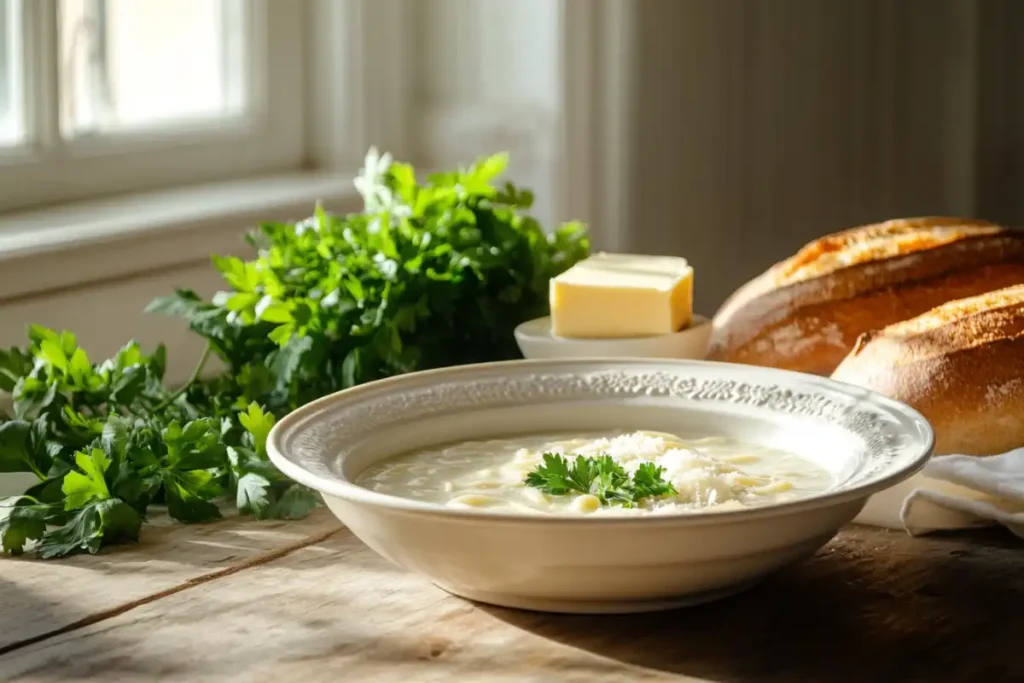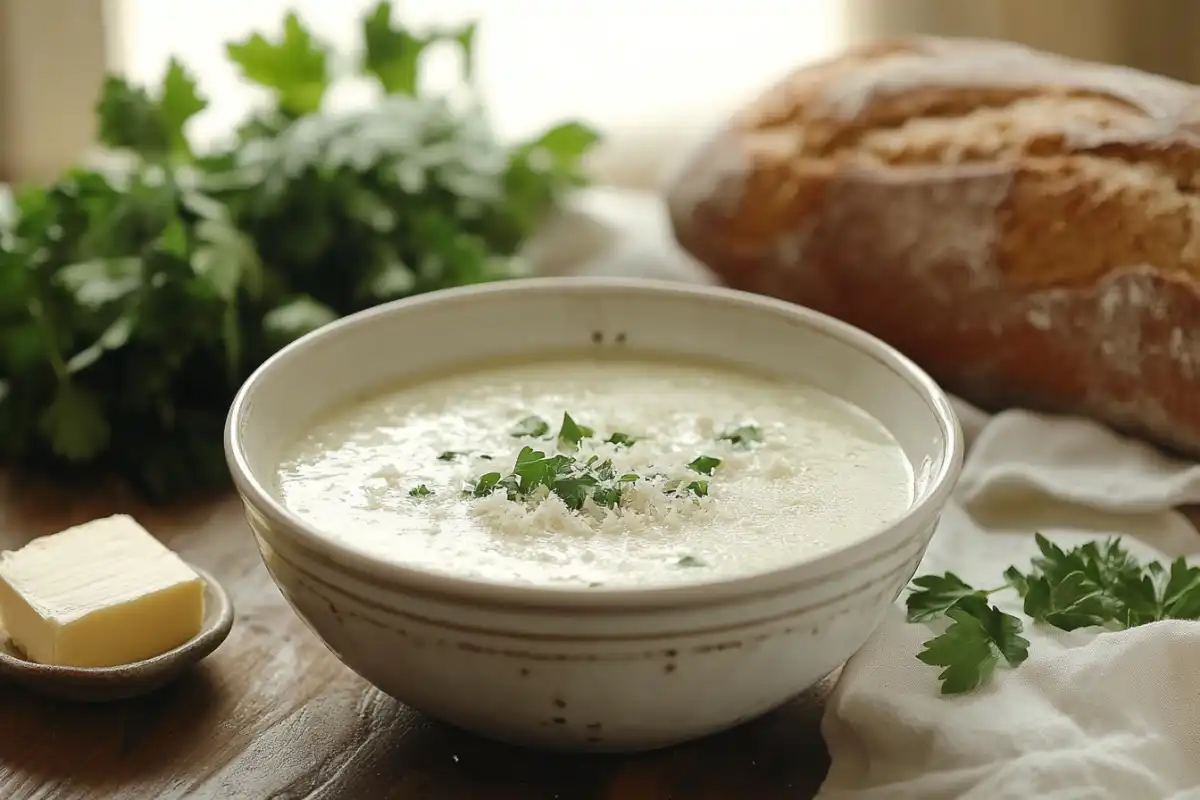Have you ever noticed how a simple bowl of pastina seems to have magical powers, instantly lifting your spirits and soothing your body? This tiny, star-shaped pasta isn’t just a staple in Italian households but also a universal symbol of comfort. From its nutritional perks to the emotional warmth it brings, pastina has earned its place as a go-to comfort food for generations. In this article, we’ll delve into why pastina makes you feel better, exploring its physical benefits, emotional connections, and cultural significance.
Understanding the Comfort of Pastina
What Is Pastina and Why Does It Make You Feel Better?
At its core, pastina is the smallest type of pasta, often shaped like tiny stars or beads. Its name, derived from the Italian word for “little pasta,” reflects its delicate size and versatility. Traditionally, pastina is cooked in broth or milk, making it a soft and easily digestible dish. This simplicity contributes to why pastina makes you feel better—it’s comforting, nourishing, and easy to enjoy, whether you’re a toddler or elderly.
Why Does Pastina Make You Feel Better as Comfort Food?
Throughout history, pastina has been synonymous with comfort. Whether it’s served to soothe an upset stomach or as a quick meal during stressful times, this pasta carries emotional significance that transcends its simple ingredients. Families across cultures have variations of pastina recipes, lovingly handed down through generations.
Interestingly, pastina is often called “Italian penicillin.” This nickname isn’t because it’s medicinal but due to its restorative reputation. Its warm, soft texture makes you feel better physically, while its association with care and healing offers emotional relief. It’s no wonder why pastina is regarded as a dish that soothes both the body and soul.
Physical Benefits of Pastina
Why Does Pastina Make You Feel Better for Digestion and Recovery?
When it comes to foods that are easy on the stomach, pastina stands out as a clear winner. Its tiny, delicate size and soft texture make it an ideal choice for sensitive digestive systems. Whether served plain or in a warm broth, pastina is gentle and nourishing—qualities that explain why pastina makes you feel better during periods of discomfort or recovery.
Why Pastina Makes You Feel Better at Any Age or Stage of Life
One of pastina’s most remarkable attributes is its universal appeal. For toddlers, its soft texture and small size make it an excellent introduction to solid foods. On the other hand, the elderly value its ease of chewing and digesting, particularly during illness or convalescence. This versatility is why pastina makes you feel better for people of all ages and life stages.
Nutritional Profile of Pastina: Why It Makes You Feel Better
Though simple, pastina offers a surprising array of nutrients that enhance its status as a comfort food.
Macronutrient Composition and Energy Boost
Rich in carbohydrates, pastina provides a reliable source of quick energy. Carbohydrates, as the body’s primary fuel, are a big reason why pastina makes you feel better when you’re feeling low. Adding toppings like olive oil or grated cheese further boosts caloric value and flavor, ensuring both comfort and sustenance in every bite.
Vitamins and Minerals for Overall Wellness
In addition to carbohydrates, pastina contains essential nutrients such as B-vitamins, which play a critical role in energy production and brain function. Iron, often found in enriched versions of pastina, supports oxygen transport, aiding overall recovery. These nutritional elements underscore why pastina isn’t just a comfort food—it’s a nourishing powerhouse.
Hydration and Electrolyte Balance: How Pastina Helps
Cooked in a flavorful broth, pastina takes on a new role: rehydrating and replenishing electrolytes, which are essential for recovery.
Why Broth-Based Pastina Makes You Feel Better
Broth-based pastina absorbs the nutrients and flavors of the liquid, creating a restorative meal. These broths, enriched with sodium and potassium, help restore electrolyte balance, while their warmth soothes the digestive system. Whether recovering from dehydration or illness, it’s easy to see why pastina makes you feel better in these moments.covery.

Emotional and Psychological Comfort of Pastina
Why Does Pastina Make You Feel Better Through Nostalgia?
If there’s one food that feels like a warm hug, it’s pastina. Its connection to cherished memories and emotions is one of the reasons why pastina makes you feel better during difficult times.
Childhood Memories That Explain Why Pastina Makes You Feel Better
For many, pastina is a trip down memory lane, recalling tender moments of being cared for during illness or on a chilly day. Picture this: a steaming bowl of pastina lovingly prepared by a parent or grandparent, served with the promise of comfort and recovery. This act of love goes beyond nourishment—it creates a bond. The comforting routine of eating something so familiar often stays with us throughout our lives, making pastina a powerful reminder of safety and care.
How Pastina Symbolizes Care and Love
Beyond its taste and texture, pastina embodies care in its purest form. It’s not a fancy dish for dinner parties; it’s reserved for moments when nurturing matters most.
Family Traditions That Show Why Pastina Makes You Feel Better
In many families, pastina recipes are handed down through generations, often with unique twists that make them personal. Preparing a bowl of pastina for someone is more than cooking—it’s an unspoken declaration of love and concern. This tradition reinforces pastina’s emotional significance, making it a dish that’s not only tied to the stomach but also to the heart.
Warmth and Soothing Effects of Pastina
There’s a reason warm foods are universally comforting, and pastina is no exception. Its warmth does more than satisfy hunger—it soothes the soul and creates a sense of peace.
Psychological Impact of Warm Pastina on Comfort
Studies reveal that warm foods evoke feelings of relaxation and security. A warm bowl of pastina, especially in broth, creates a sensory experience that soothes both the mind and body. The softness of the pasta, combined with the gentle warmth it radiates, is like a lullaby for the senses. It’s easy to see why pastina makes you feel better, offering both physical and emotional calm.
Cultural Significance of Pastina
Why Does Pastina Make You Feel Better in Italian Cuisine?
It’s impossible to discuss pastina without acknowledging its deep roots in Italian culture. This tiny pasta isn’t just a pantry staple—it’s a cornerstone of traditional Italian cooking, steeped in meaning and history.
Traditional Recipes That Show Why Pastina Makes You Feel Better
In many Italian households, pastina is the first dish a child learns to eat, and often the first they learn to prepare. Simple recipes like pastina cooked in chicken broth, finished with butter or Parmigiano-Reggiano, reflect the heart of Italian cooking: simplicity and quality.
Some families add their unique touches, such as beaten eggs, cheese, or a splash of tomato, to make the dish special. These variations are passed down through generations, preserving family traditions and regional flavors. Pastina reminds us of Italy’s culinary philosophy—comfort and nourishment over extravagance—and explains why pastina makes you feel better, both physically and emotionally.
Pastina as “Italian Penicillin”: Why It Makes You Feel Better
Healing Reputation That Explains Why Pastina Makes You Feel Better
People affectionately call pastina “Italian penicillin” because it remedies colds, upset stomachs, or general malaise. Its mild flavor, soft texture, and easy digestibility make it a perfect choice for those with diminished appetites or sensitive stomachs.
When you prepare pastina in a warm, flavorful broth, it transforms into more than just a meal—it creates a soothing experience. The warmth of the broth supports digestion and brings comfort, while the pasta’s tender texture allows for effortless eating. This combination of ease and nourishment highlights why pastina makes you feel better, especially during challenging times.
In addition to its physical benefits, pastina holds a symbolic significance. When a parent or grandparent lovingly prepares a bowl, it delivers more than nutrients—it carries emotional healing and care.
Italian culture views food as medicine, and pastina perfectly embodies this belief. It blends physical nourishment with emotional support, offering a dual role that explains why pastina makes you feel better in ways far beyond its simple ingredients. It fills the stomach, yes, but it also lifts the spirit with every bite.
Preparing Pastina: Recipes and Variations
Classic Pastina Soup Recipe: Why Does Pastina Make You Feel Better?
A classic pastina soup is the ultimate comfort food, loved for its simplicity and restorative qualities. This dish exemplifies why pastina makes you feel better—its warmth, softness, and nostalgic taste create a soothing experience. Here’s a straightforward recipe that highlights its traditional preparation.
Ingredients and Instructions
Ingredients:
- 1 cup of pastina (any small pasta shape like stars or beads)
- 4 cups of chicken or vegetable broth
- 1 tablespoon of unsalted butter
- 2 tablespoons of grated Parmigiano-Reggiano cheese
- A pinch of salt and pepper (to taste)
Instructions:
- In a medium-sized pot, bring the chicken or vegetable broth to a gentle boil.
- Add the pastina and stir occasionally to prevent sticking. Cook for about 5–7 minutes or until tender.
- Reduce the heat to low and stir in the butter until fully melted.
- Sprinkle the grated Parmigiano-Reggiano cheese on top and stir to combine.
- Season with salt and pepper to taste. Serve warm, and enjoy the comforting simplicity of pastina.
This foundational recipe is highly adaptable, making it perfect for any occasion when you need a dish that comforts and nourishes.
Creative Variations: How to Make Pastina Even Better
If you’re seeking to elevate the classic pastina recipe, there are countless ways to enhance its nutritional value and tailor it to your taste. These creative twists show why pastina makes you feel better with every bowl.
Incorporating Vegetables and Proteins to Boost Benefits
Adding vegetables and proteins not only enhances the flavor but also makes pastina more filling and nutritious.
- Vegetables: Dice carrots, celery, and zucchini into small pieces, and add them to the broth while cooking the pastina. Stirring in spinach or kale at the end provides a nutrient-rich dose of greens.
- Proteins: Shredded chicken, cooked ground turkey, or even a poached egg can turn pastina into a hearty, complete meal. For a plant-based option, try adding soft tofu or small chunks of fish like cod for extra texture and flavor.
- Legumes: Toss in a handful of cooked chickpeas or lentils for a protein boost and satisfying texture.
By experimenting with these additions, you can transform pastina into a versatile dish that satisfies different cravings. Whether you stick to the classic recipe or opt for a nutrient-packed variation, it’s easy to see why pastina makes you feel better—it’s a dish that nourishes both body and soul.
Frequently Asked Questions about Pastina
What is pastina?
Definition and Common Varieties
Pastina is the smallest type of pasta, traditionally used in soups or as a soft dish. Its name comes from the Italian word for “little pasta,” and it typically comes in shapes like stars, beads, or tiny grains. Popular in Italian households, pastina is cherished for its ease of preparation and versatility. Whether served in broth or cooked with milk, its texture and size make it a beloved staple for all ages.
Is pastina suitable for gluten-free diets?
Gluten-Free Alternatives
While traditional pastina is made from wheat and contains gluten, there are gluten-free options available. Many brands now produce gluten-free versions using alternative flours like rice, corn, or quinoa. These options maintain the small size and texture of classic pastina, ensuring that even those with dietary restrictions can enjoy its comfort and versatility.
Can pastina be used in cold dishes?
Versatility in Recipes
Absolutely! While pastina is most commonly served warm, it can also shine in cold dishes. It works beautifully in pasta salads, where its small size blends seamlessly with diced vegetables, herbs, and light dressings. Tossed with olive oil, lemon juice, and fresh ingredients, cold pastina dishes provide a refreshing alternative to its traditional warm presentation.
Where can I purchase pastina?
Availability in Stores and Online
Pastina is widely available in grocery stores, particularly in the pasta aisle. In Italian specialty shops, you may find unique varieties and shapes. For convenience, online retailers like Amazon and specialty Italian food websites offer a wide selection, making it easy to stock up on this comforting pantry essential.
Why is pastina considered a comfort food?
Emotional and Physical Comfort
The soothing qualities of pastina are rooted in both its physical and emotional attributes. Its soft texture and mild flavor make it easy to digest, while its nostalgic ties to childhood and family care evoke feelings of warmth and love. Whether you’re unwell, stressed, or simply craving familiarity, pastina provides comfort in every bite.
Conclusion
In the world of comfort foods, pastina holds a unique and cherished position. This tiny pasta, though simple in form, carries with it a profound ability to nourish both the body and soul. From its easy digestibility and nutritional benefits to its emotional resonance, pastina embodies the perfect blend of physical sustenance and psychological comfort.
For generations, it has been a trusted remedy for times of illness, a nostalgic connection to family traditions, and a versatile dish that adapts beautifully to modern tastes. Whether you enjoy it as a classic bowl of warm soup or experiment with creative variations, pastina proves that the simplest dishes often have the most profound impact.
Its cultural significance, lovingly passed down in Italian households, and its nickname as “Italian penicillin” further cement its role as more than just a meal—it’s an experience. With every spoonful, pastina reminds us of the power of food to heal, connect, and comfort.
As you savor your next bowl of pastina, may you find the warmth, nourishment, and love that generations before have discovered in this timeless dish. Here’s to pastina—the little pasta with a big heart.

